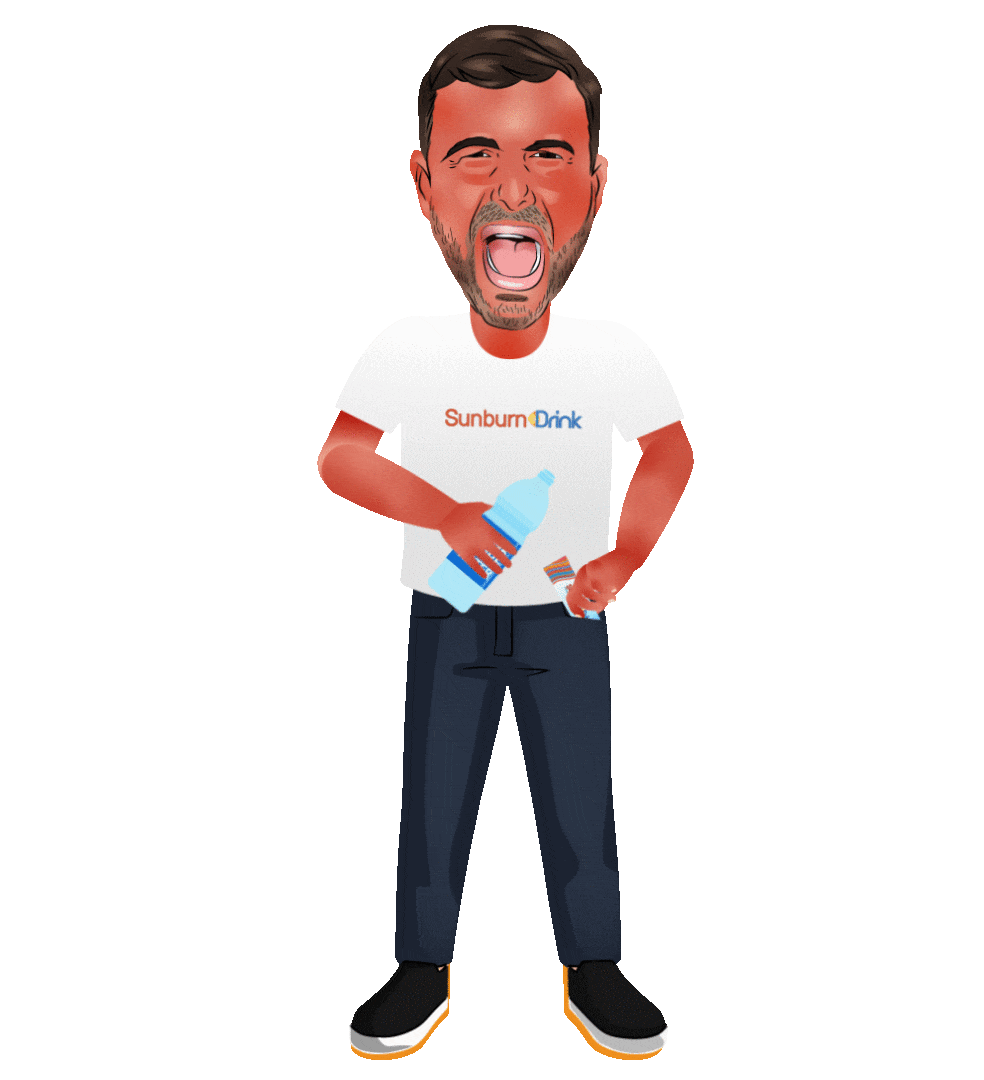Now that summers are here, it is time to soak up the sun outside at the pool, mow the lawn lake, play in the park, walk around, or enjoy the beach. However, it would be best if you were careful of the ultraviolet radiation that can damage your skin and even pose considerable health concerns such as skin cancer. Most people are unaware of pertinent information regarding sunburn and may end up believing some common myths. Myths about sunburn can make you more prone to suffering through them. Here are some generally held myths and facts about sunburn that you should review to ensure your safety during this summer season.
Myth: Clouds will keep you safe
A lot of people believe that you can only get sunburn when you feel the rays of the sun. However, just because you are not feeling a severe burning sensation doesn’t mean that your skin is not in contact with ultraviolet radiation. UV rays could be intense even on an overcast or cloudy day. A sunburn is possible even when the sun is not scorching and shining brightly.
Myth: Shady areas can block UV rays
Ultraviolet rays can only get blocked partially in shady areas such as umbrellas or tree leaves. However, it is important to keep in mind that UV rays can easily bounce off surfaces such as water, sidewalks, sand, and grass to reach your skin. This means that when you are in the shade, you are not entirely safe against sunburn.
Fact: Sunscreen can protect you against sunburn
If you keep reapplying sunscreen throughout the day at regular intervals, you can protect your exposed skin against sunburn. However, do not forget hard-to-reach areas, and make sure that you use a sunburn with adequate SPF. Also, keep in mind that even when you are in shady areas, swimming, or it is the evening, you need to keep applying your sunscreen. To protect your lips, you can use lip balm that offers sun protection.
Myth: People with dark skin don’t need to worry about sunburn
A lot of people think that freckled, red-headed, and pale people need to worry about sunburn. However, people who have darker skin are equally prone to getting sunburn. Even though people with dark skin may not witness a pink burn, it doesn’t mean that they do not need to protect themselves. In fact, people with darker skin may suffer from early skin aging and wrinkles from getting too much sun exposure.
Fact: Hydration can help in healing sunburn
When you are suffering from sunburn, you need to stay hydrated. You need to help your skin cells in recovering faster, and if the skin in the affected areas is dehydrated, it will only delay healing. Ensure that you keep consuming liquids at regular intervals. You should also use some ions and nutrients to nourish your body and improve circulation. Drinks like the sunburn drink are perfect for helping you heal a sunburn while nourishing your body.
Myth: There is no difference between sunscreen and sunblock
Not all sun protection products are the same. Sunscreen and sunblock both offer you different levels of protection and quality. You need to use a broad-spectrum sunscreen that offers you an SPF of at least 15. The maximum SPF that you can use should be somewhere around 50 and 60. SPF, or the sun protection formula, can help you in getting better coverage against UV rays. If you opt for a broad-spectrum sunscreen, it will be able to cover both UVB and UVA rays.
Myth: You can protect your skin from sunburn later
Generally, a belief among young people, there is no such thing as later when it comes to sun protection. Sun damage is not typically something that teenagers or people in their 20s should take lightly. A lot of youngsters try to sunbathe until they get the perfect tan. However, you may need to deal with the consequences of sun damage even years from now.
Fact: Guarding your skin against sunburn can reduce aging
People who have been focused on sun protection from a young age are more prone to reduce aging. Sunburn is a sign of skin damage, and when you stay completely focused on your daily sunburn prevention jobs, such as applying sunscreen, avoiding going outdoors at peak hours, and staying hydrated with the sunburn drink and water, you can easily protect your skin. Healthy skin that has not been damaged from the UV rays of the sun is less prone to aging and has reduced brown spots and wrinkles.
Myth: You can’t get sunburned in the mornings or evenings
During the summers, it is not only the peak hours of the sun that you need to be careful of. The morning or evening time can also have some lingering UV rays of the sun that can easily reflect off surfaces to reach and damage the skin. It is advised to stay indoors when the sun is the most intense. However, during the evenings and mornings, ensure that you apply sunscreen as well.

Conclusion
A sunburn can be extremely uncomfortable and has the potential to pave the path for more serious health concerns. However, if you follow appropriate care against sun damage, you can greatly reduce your chances of getting a sunburn. It is crucial to keep yourself and your family completely safe from sunburn during summer.

